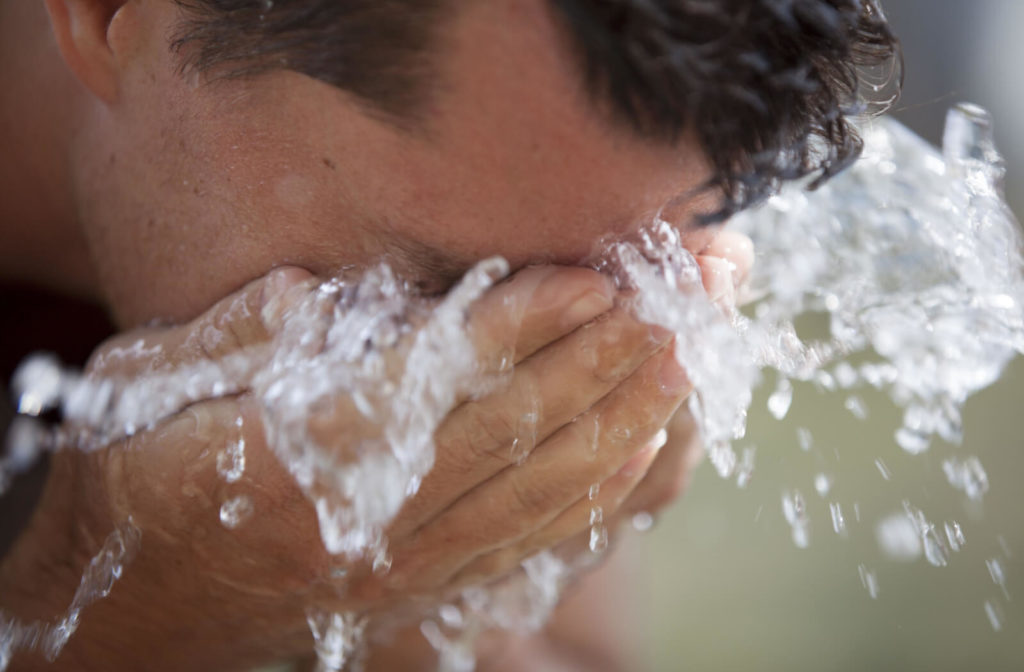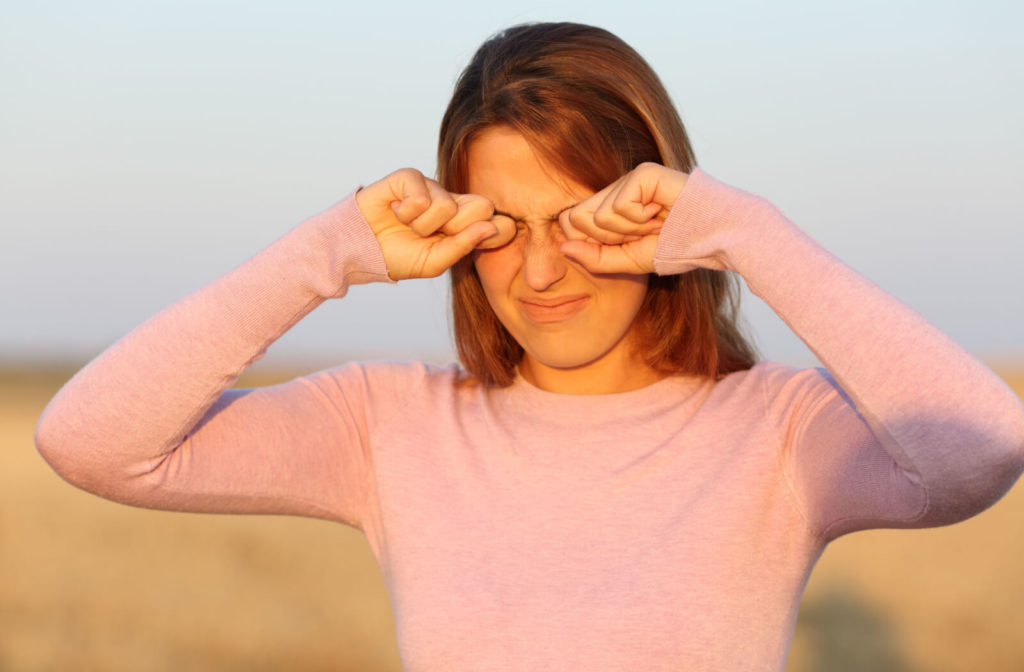One of the common questions that gets asked during the summer months is whether or not it’s possible for your eyes to get sunburned. The short answer is yes, your eyes can get sunburned, but it’s a little more complicated than that.
Our skin and eyes are vulnerable to the elements, which means that similar to our skin, our eyes can become sunburned from prolonged exposure to UV radiation, that’s why it’s important to wear proper eye protection like sunglasses.
Sunburned eyes, also known as photokeratitis, can occur when the cornea or retina becomes damaged from prolonged exposure to UV radiation.
How Do Eyes Get Sunburned?
The most common cause of eye sunburns is prolonged exposure to UV radiation. This can occur when we’re outside for an extended period without proper eye protection.
Your eyes can even get sunburned when sunlight reflects off surfaces like ice, water, buildings, or cars. Additionally, failing to wear eye protection when using a tanning bed can also damage your eyes.
Symptoms
Symptoms of photokeratitis include:
- Redness
- Headache
- Eyelid twitching
- Pain
- Sensitivity to light
- A gritty or sandy feeling in the eyes
- In severe cases, it can even cause temporary vision loss
When Is Eye Sunburn Risk the Highest?
Try to remember that the sun’s UV rays are strongest between the hours of 10 a.m. and 4 p.m., so it’s especially important to protect your eyes during this time. In addition to these peak hours, there are other times you should make sure to take extra care of your eyes that you may not think of:
Days Out in the Snow
Winter sports such as skiing, sledding, and snowshoeing can endanger your eyes due to the combination of UV light from the sun and glare from the snow. When UV radiation is reflected by snow and ice, it can cause snow blindness, a rare form of photokeratitis.
People at High Altitudes
If you live or spend time at high altitudes (for example, while hiking or climbing), you are more vulnerable to UV rays because the air is thinner.
Tanning Beds
Tanning beds emit high levels of UV radiation, which can cause eye damage.
How to Protect Your Eyes in the Sun
You can’t exactly lather up your eyes with sunscreen, so how are you supposed to protect yourself from the elements?
The most effective way is to wear sunglasses or other protective eyewear that blocks out UV radiation. It’s also a good idea to wear a wide-brimmed hat to shade your eyes from the sun.

How to Treat Sunburned Eyes
The treatment for sunburned eyes depends on the severity of the burn. Here are some steps you can take to treat sunburned eyes:
- Remove any contact lenses or other foreign objects from your eyes.
- Rinse your eyes with cool water for 10-15 minutes. This can help to soothe the burn and remove any particles that may be causing irritation.
- Apply a cold compress to your eyes. You can use a clean cloth soaked in cold water or a bag of frozen vegetables wrapped in a towel.
- Close your eyes and rest in a dark room. Avoid exposing your eyes to bright light, as it can make the symptoms worse.
- Over-the-counter pain medication can help to alleviate any discomfort or pain associated with sunburned eyes.
- If your symptoms are severe or don’t improve after a few days, it’s important to see an eye doctor. Photokeratitis can sometimes cause long-term damage to the cornea and may require medical treatment.
What Happens If You Don’t Protect Your Eyes from the Sun?
Not protecting your eyes from the sun regularly can lead to more than just sunburned eyes. Prolonged exposure to UV radiation can increase your risk of developing:
- Cataracts
- Age-related macular degeneration (AMD)
Cataracts
Cataracts are a common eye condition that occurs when the lens of the eye becomes cloudy. This cloudiness can cause vision loss and may require surgical intervention to correct it.
UV radiation is a risk factor for the development of cataracts, and prolonged exposure to UV radiation can increase your risk of developing this condition.
It’s not exactly clear how UV radiation increases the risk of cataracts, but it is believed that it may cause damage to the proteins in the lens of the eye, leading to their breakdown and the formation of a cataract.
Age-Related Macular Degeneration
AMD is a degenerative condition that affects the retina, the layer at the back of the eye responsible for detecting light and color. It’s the leading cause of vision loss in older adults and can cause a variety of symptoms, including:
- Difficulty seeing fine details
- Visual distortion of straight lines
- Difficulty in low light
It’s not exactly clear how UV radiation increases the risk of AMD, but it is believed that it may cause damage to the cells in the retina, leading to their breakdown and the development of AMD.
Think Your Eyes May Be Sunburned?
While it may not be as common as sunburned skin, our eyes can get sunburned. If you’re experiencing some of the symptoms of sunburned eyes, book an appointment with Total Vision Del Mar.
We can help you with treatment options and discuss how to prevent sunburned eyes in the future.



